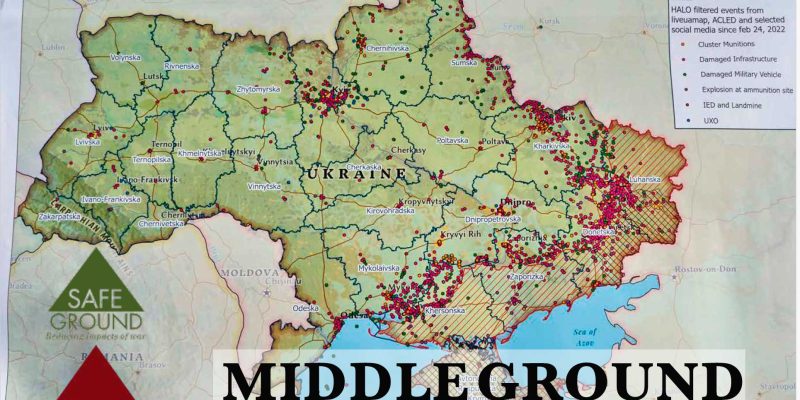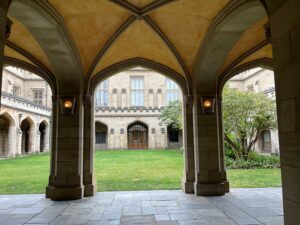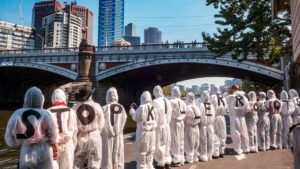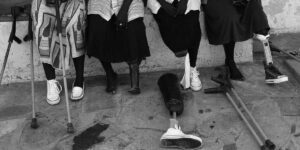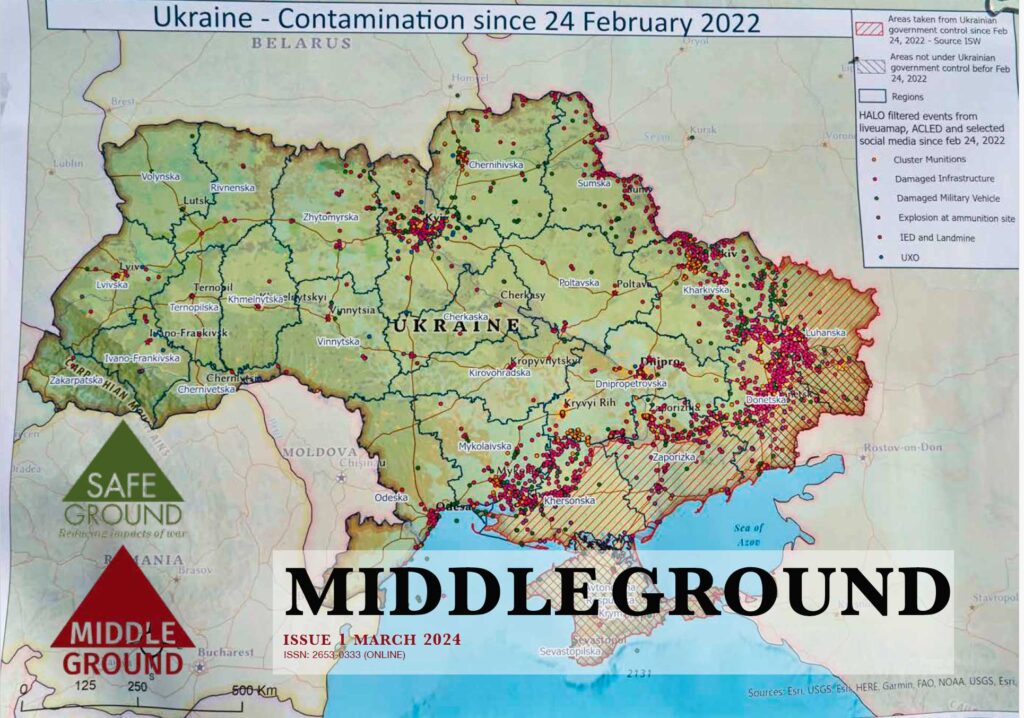
Foreword
Over the past six months, SafeGround has been busy working to reduce the impacts of legacy and emerging weapons.
HISTORIC MOMENT IN NOVEMBER 2023
Our efforts on the Stop Killer Robots campaign have seen significant progress, particularly in the Pacific region. In November 2023, a historic moment unfolded at the United Nations General Assembly First Committee. It was historic for the international community but also for Pacific engagement on the issue of autonomous weapons. The first ever resolution on autonomous weapons passed with an overwhelming majority. Amongst the 164 states in favour were eight small Pacific Island nations, marking the first time many of them have engaged with this issue. Since the genesis of SafeGround’s regional campaign, Pacific engagement has increased exponentially. Today the majority of Pacific Island states represented at the UN are taking a stand against autonomous weapons. Our dedication remains unwavering as we look ahead to the UN Secretary General’s forthcoming report on autonomous weapons, which invites states and stakeholders to contribute their perspectives on humanitarian, legal, security, technological, and ethical dimensions.
Australia, unfortunately, continues to develop and invest in such weapons. We pursue various avenues to engage our government on critical issues related to autonomous weapons systems. Despite persistent resistance to supporting a legally binding instrument, Australia’s recent alignment with the UNGA resolution signals a potential shift. As we look to the future, we remain hopeful for Australian support when we approach the United Nations General Assembly later this year. We hope Australia will join the global call for an international treaty, safeguarding our global community. In our view, killer robots are a step too far. We have witnessed the impact of digital dehumanisation in social settings, and seek to avoid a dangerous precedent in warfare. Let’s hope that in the near future, Australia will share our vision.
BROADENING MINE ACTION – HONIARA
Our commitment to support victims of war in the Solomon Islands is steadily building in Honiara. Our project is ‘Broadening Mine Action in the Solomon Islands’. With the help of Maeverlyn Kabolo Pitanoe, a survivor of an unexploded ordnance accident, we are laying foundations to deliver risk education and victim assistance projects in response to explosive remnants of war contamination which continues to impact lives and livelihoods in the Pacific. Maeverlyn’s resilience and insight is invaluable to SafeGround’s goals implementing a robust and comprehensive approach, addressing the challenges associated with explosive remnants of war contamination, a crucial yet overlooked aspect by governments, including Australia.
LETHAL AUTONOMOUS WEAPONS INTERACTIVE DOCUMENTARY
“The manufacture and deployment of lethal autonomous weapons (LAWS) is unregulated and is a system that isn’t limited to the battlefield nor to professional armies – it is out of control both in terms of who makes and deploys them, and who is targeted. In a new conflict landscape where AI is in command, where does accountability rest when AI has decision-making control and innocent lives are lost?”
The interactive documentary, Lethal Autonomous Weapons on Trial, has received development funding from Screen Queensland. The project investigates who is to blame in a scenario in which two young Pasifika siblings are misidentified and killed by autonomous weapons. Informed by real-life expert witnesses from AI research and development, militaries, governments, law and ethics, the audience must act as a jury to determine culpability, and in doing so, decide on how the question of lethal autonomous weapons regulation should be answered. SafeGround provided seed funding to help the project get to this important stage of development. For more information, and to learn how you can support this project, please visit https://www.lawsontrialfilm.com.
KOKATHA PEOPLE
In 2022, SafeGround was asked to consult on some munitions found on the Woomera Missile Testing Range by the lawyers representing the traditional owners of the area, the Kokatha People. We provided the comments and identification that we could and besides general munitions such as mortars, a Swedish manufactured SAAB missile was identified.
This missile wasn’t just present, which was a breech of defences ‘clean ranges policy’, but had landed directly on top of a sacred site. A field trip was conducted with the senior Kokotha elder, theWoomera Range Base Commander and John Rodsted of SafeGround. Of all things discussed the concept of creating a catalogue of important sites, objects etc was discussed. Both the senior Elder and the Base Commander vigorously embraced the idea. From the Base Commander’s perspective he was horrified that their actions could damage sacred sites or objects. He put it that if they know where they are they will avoid them. This sentiment was echoed by the senior elder.
A year passed but much discussion was undertaken between the Kokatha and SafeGround. John Rodsted offered to conduct a field mission in Woomera to begin such a catalogue. This trip eventuated in October 2023 and we spent three weeks in the desert systematically documenting everything found. The team was Andrew Starkey – a Kokatha elder, John Rodsted, Mette Eliseussen and Miriam Deprez (SafeGround’s senior field Researcher National Coordinator and Secretary) and Dr Samid Suliman from Griffith University.
Five sites were searched and over 1,500 items discovered. The work was done in the early morning and late evening light. This gave a low light angle and painted the petrographs with light that created texture. It was this that allowed so many new objects to be found. It became a joke between Andrew and John as to how many minutes it would take from arriving on a site to find something new. The reality was it was seconds. The moment they stepped from their cars rock carvings popped out at them.
This proved the importance of such a project and we strongly believe that an exhaustive body of work needs to be created. This catalogue would prove the existence of every object, document its condition and location and be added to a mapping database to be used by stakeholders both traditional owners and defence.
SafeGround, Griffith University and Camerapro provided funding for the previous field visit to undertake the beginning of this work. We are currently preparing a complete budget and we are looking for funding to undertake this project fully and properly.
Another field mission will begin in mid April. A small team from SafeGround and the Kokatha will spend an undetermined amount of time in the desert documenting and finding new sites. Some of this work is so sensitive that we’ll be working on locations that have never been documented and for now will stay secret as to their locations. These sites will be in some of South Australia’s most inhospitable areas which requires a full expedition to access.
The genesis of this project is also a valid bridge builder between the Kokatha People, Defence and SafeGround. Both the Base Commander and Kokatha recognise the importance of collaboration re the preservation of these places and objects. All parties also recognise that the missile testing range at Woomera does and will continue to exist into the future so finding a way to work together for the preservation of this ancient culture is the only functional way forward.
SafeGround is definitely up to the challenge of working within this space and undertaking the field work with the Kokatha. The long term key will be how to fund it into the future. But for now we work on the idea of ‘Never let lack of money get in the way of a good idea’.
There is a lot to be proud of, but our work is far from over. Our small organisation will strive to make big differences in our efforts for a safer and more peaceful world.
SafeGround Committee, March 2024
